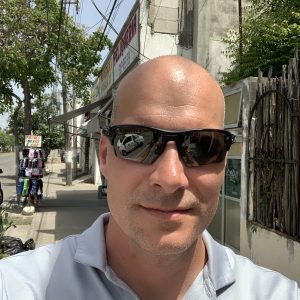Social media platforms have had an immense impact on the lives of today’s teens. A 2018 Pew Research Center survey of some 750 13–17-year-olds found that 45 percent were online almost constantly and 97 percent used social media platforms, such as YouTube, Facebook, Instagram, or Snapchat. These numbers are unlikely to have gone down since then.
Some psychologists have started to blame the non-stop exposure to social media for the mental health crisis currently unfolding among adolescents. In her 2017 book iGen, psychology professor Jean Twenge warned of a mental health crisis devastating members of the Gen Z cohort (born between 1995 and 2012) whom she labeled “iGen” because they never lived in a world without the internet.
“Social media use can negatively affect teens, distracting them, disrupting their sleep, and exposing them to bullying, rumor spreading, unrealistic views of other people’s lives, and peer pressure,” warns an information page from the Mayo Clinic.
In her new book, Generations, Dr. Twenge indicates that Gen Z members are twice as likely to be dissatisfied with their lives than millennials at the same age; are twice as likely to be clinically depressed; and are twice as likely to take their own lives as teens compared to millennials.
“The number of teens with clinical-level depression doubled between 2011 and 2020,” Twenge writes. “There is a full-blown mental health crisis among young people, and it was building long before the COVID-19 pandemic.”
This month, the American Psychological Association (APA) published its own health advisory on social media use in adolescence examining potential beneficial and harmful effects of social media use on adolescents’ social, educational, psychological, and neurological development.
The APA emphasizes that “using social media is not inherently beneficial or harmful to young people” and that “experiences online are affected by both 1) how they shape their own social media experiences (e.g., they choose whom to like and follow); and 2) both visible and unknown features built into social media platforms.”
Because of the obvious potential for mental health challenges, “Youth using social media should be encouraged to use functions that create opportunities for social support, online companionship, and emotional intimacy that can promote healthy socialization.”
Parents should definitely monitor the social media use of their children, especially in early adolescence. However, “monitoring should be balanced with youths’ appropriate needs for privacy.”
To reduce the risks of psychological harm, “adolescents’ exposure to content on social media that depicts illegal or psychologically maladaptive behavior, including content that instructs or encourages youth to engage in health-risk behaviors, such as self-harm (e.g., cutting, suicide), harm to others, or those that encourage eating-disordered behavior (e.g., restrictive eating, purging, excessive exercise) should be minimized, reported, and removed.”
Evidence shows that “exposure to maladaptive behavior may promote similar behavior among vulnerable youth, and online social reinforcement of these behaviors may be related to increased risk for serious psychological symptoms, even after controlling for offline influences,” warns the APA.
Exposure to “cyberhate” including discrimination, prejudice, hate, or cyberbullying especially when directed toward marginalized groups (racial, ethnic, gender, sexual, religious, ability status), or toward individuals because of their identity should also be minimized as “research demonstrates that adolescents’ exposure to online discrimination and hate predicts increases in anxiety and depressive symptoms.”
The APA recommends that adolescents be “routinely screened for signs of ‘problematic social media use’ that can impair their ability to engage in daily roles and routines, and may present a risk for more serious psychological harms over time.”
To avoid adverse effects of social media use, adolescents should receive “training in social media literacy to ensure that users have developed psychologically-informed competencies and skills that will maximize the chances for balanced, safe, and meaningful social media use.”
The APA is also calling for substantial resources to be provided for “continued scientific examination of the positive and negative effects of social media on adolescent development.”
Many of our patients have been exposed to those negative effects. Turning Winds provides a therapeutic respite from the dysfunctional aspects of the social media milieu, reconnection with core human values, and the holistic education and therapeutic alliance needed to perceive and practice intentional living. We have taken the best elements of care from wilderness therapy, therapeutic boarding schools, and inpatient treatment to create a one-of-a-kind residential treatment center.
When parents bring their kids to our remote place in Montana to make them disconnect, they are relieved to see the healthy setting their kids will experience. “They’re not going to be distracted with everything out there; phones, internet, television, social media, even the pressures of school and fitting in,” says Turning Winds therapist Kim Sparks. “Most parents feel this is a great privilege for their kids to be up here.”
Contact us online for more information, or call us at 800-845-1380. If your call isn’t answered personally, one of us will get back to you as soon as possible.









